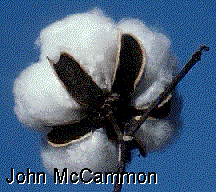
| |
 |
![]()
I have found some of the cheaper sleeping bags to be made without cotton. They are made with nylon with polyester fill or some times other synthetic non-water absorbable fiber. They are extremely light and cheap. Typically, they have a list price of $20/each. The ones I found were on sale for $10/each and weighed 3.2 lb. If you are in extremely cold area you may need two of these sleeping bags, one inside the other. I too believe cotton is not appropriate after the pole shift. Never drying out, it will rot off your back so to speak.
 I believe wool to be an excellent choice if available and you can
afford or find it. I believe wool to be a bit heavy in weight dry or
wet. I consider the synthetics to have an advantage in this regard.
The durability of wool I expect to be less than for the same
thickness of synthetic cloth. This could be argued based on the
fact that most synthetics are much thinner than wool. I have found
garage sales to be a cheap source of synthetic material (not
cotton) and wool items. If the price is right one may buy it for the
material or in case it might fit another at a later time. So size and
looks are not that important when shopping in this way. Just look for anything non-cotton at a
low price.
I believe wool to be an excellent choice if available and you can
afford or find it. I believe wool to be a bit heavy in weight dry or
wet. I consider the synthetics to have an advantage in this regard.
The durability of wool I expect to be less than for the same
thickness of synthetic cloth. This could be argued based on the
fact that most synthetics are much thinner than wool. I have found
garage sales to be a cheap source of synthetic material (not
cotton) and wool items. If the price is right one may buy it for the
material or in case it might fit another at a later time. So size and
looks are not that important when shopping in this way. Just look for anything non-cotton at a
low price.
Offered by Mike.
My experience with any form of sleeping bag, including a $300 one I had which was
supposed to dry rapidly and retain heat when wet, simply take too long to drain and to dry.
This is especially so in humid weather where the sleeping bag is hung under a tarp with a
campfire to help it dry. On the other hand, I have two synthetic wool blankets that drain just
as fast as wool, retain warmth when wet like wool, and will dry under a tarp in very humid
weather from the heat of a camp fire. I've spent an awful lot of money on various sleeping
bags and have never found one that is as reliable as 2 or 3 wool or appropriate (expensive)
synthetics. This experience comes from extensive kyak touring where everything somehow
gets wet one way or another no matter what precautions are taken. There is nothing worse
than a soaking sleeping bag. They just don't drain like a blanket can.
Not just any synthetic will do, however. The best that I have used came from Eastern
Mountain Sports and have all the advantages of wool without it's disadvantages. The problem
here is cost. A light blanket of this material costs about $60, where as you can buy the same
size wool blanket from an army surplus store for $15 or less.
Offered by Ron.